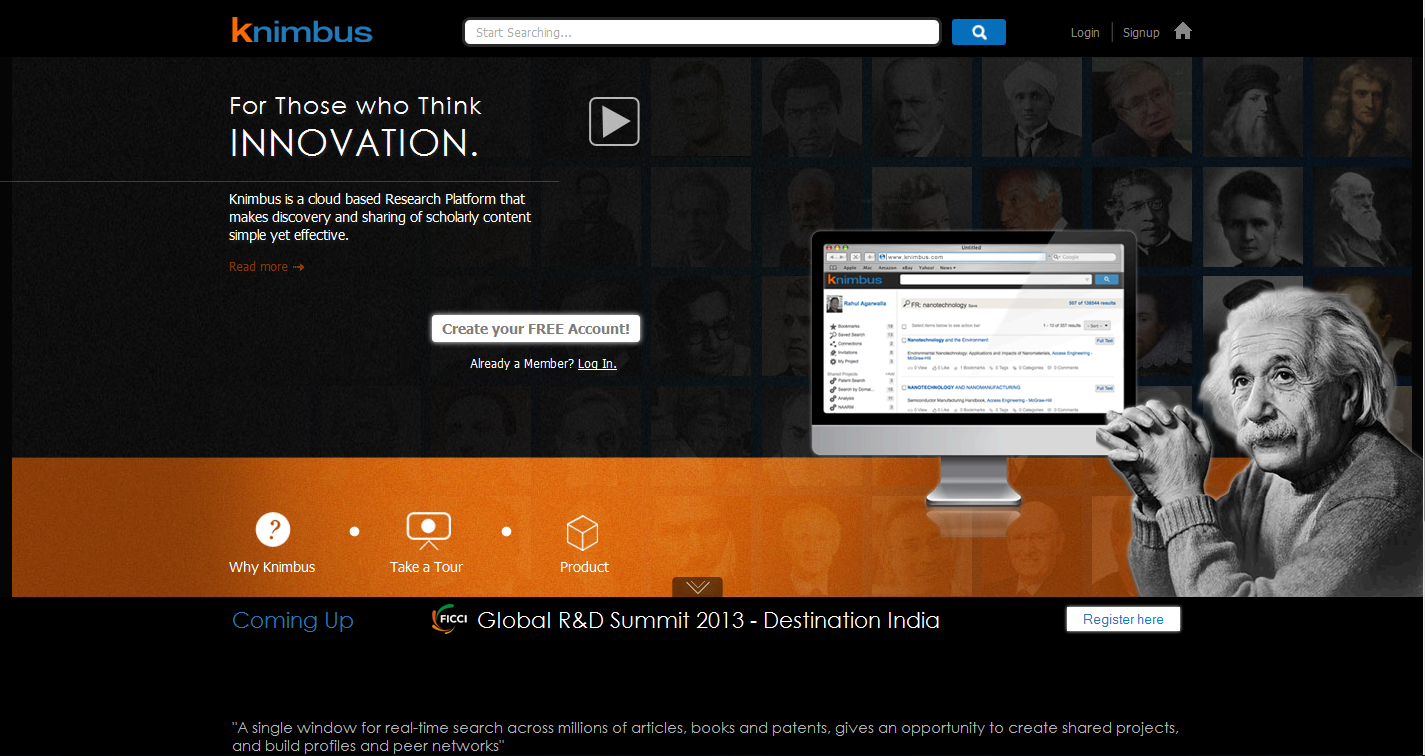Knimbus democratising research, by helping discovery and sharing of scholarly content
It was recently announced that the government would dedicate 2% of the country’s GDP in research activities. But what is the status of research in India? I got the answer to this question in a conversation with Rahul Agarawalla, the founder of the company behind the research tool, Knimbus. He says, “There are two elements of high quality research. One is access to other research papers, and other is collaboration. Unfortunately in India, up to 18% researchers won’t collaborate.”

This is the premise on which Knimbus was built. It is a cloud-based research platform which helps in discovery and sharing of scholarly content. After having spent a good amount of time in the research field, in India and Japan, Rahul co-founded Knimbus with his long time friend Tarun Arora. When we last spoke to the Knimbus team, they had about 500 users and they had just launched. This time around, they’ve grown and have some exciting things planned in the near future.
The 100,000 mark
Rahul shared that Knimbus has seen some impressive growth over the last year. Knimbus runs on an institution-based subscription model where all the resources and collaborative features and apps are available to its users. He says, “Knimbus is now used in over 1,200 institutions across 34 different countries. From a revenue standpoint, we’re touching a 100,000 USD this year, which is a great number for us.”
Knimbus had raised an undisclosed angel round from individual investors in June 2013, but Rahul shared that not much investment has gone into a sales team as such. He says, “Most of the people at Knimbus are mainly into product development and executive operations. We have a few people on marketing, but that’s about it. We have no sales guys, no HR guys and no finance guys.” Knimbus has today grown to a team of 25.
In a span of two years, Rahul admits that the growth of the company has been rapid and has shown great potential to grow in the near future. However, the motivation of starting up for Rahul is completely different.

Democratising research
“Back in the day, journalism used to be restricted to a select group of people. The editors of large publications possessed great knowledge and it was locked up within that community. With the coming of internet, that has changed. Today, a tweet is a story and the internet revolution, has in many ways, democratised journalism.”
Rahul believes that the same is happening with research. He says, “While it’s important to become a profitable and large company, the juncture we’re at is very important. You see, research was for long thought to be like an ivory tower, exclusive to a few. That tower has been smashed down and the research world has become very flat. The more places we help make this happen, the more successful we become.”
The end game
Rahul believes that a lot more cross-institution and even cross-country research teams will really benefit India. He says, “The government can spend as much money as they want, but the best research comes from collaboration. An IIT and an IISc collaboration is much greater than one from the same institute, and an India and Japan collaboration, even better.”
But on a personal level, Rahul has a very romantic ambition. He says, “You spend a lot of time working, and it only makes sense to be doing something you’re passionate about. After my MBA, I had landed a job with GE. All of my friends thought I was mad to not take it. I joined a dot-com startup, because I was passionate about it. I’ve passionately believed in everything I’ve done. That’s all there is to it.”
Rahul shared that his story with Knimbus is just beginning and his end game is simple, inspired by Henry Wadsworth Longfellow, thus: “To leave my footprints in the sands of time.”
Check out Knimbus and tell us what you think.







![[Funding alert] HomeLane raises Rs 60 Cr from Stride Ventures, existing investors](https://images.yourstory.com/cs/wordpress/2017/08/Srikanth-Iyer-Co-founder-CEO-of-HomeLane.jpg)


![[YS Exclusive] Whiteboard Capital commits up to Rs 100Cr more to invest in hardware startups to boost ‘Made in India’ drive](https://images.yourstory.com/cs/2/a0bad530ce5d11e9a3fb4360e4b9139b/SandeepTandon-01-1594465927166.png)
